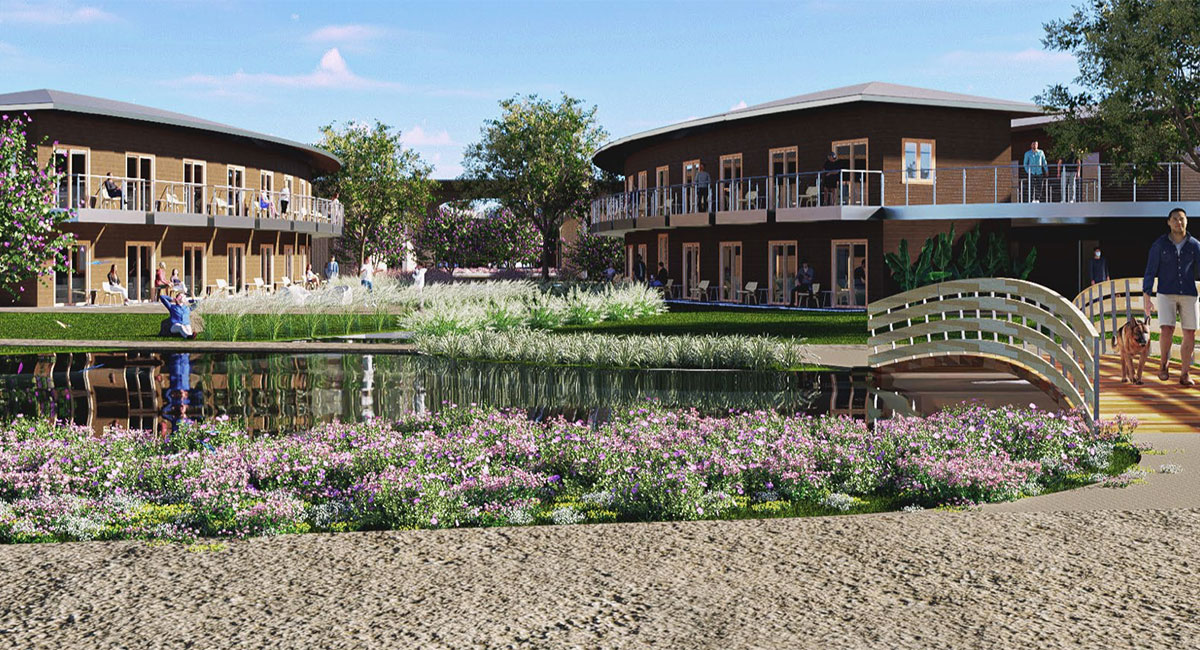As a native Wichitan, I never expected my work on San Francisco homelessness to bring me home. But as it turns out, Wichita has the greatest potential to become the national model for successfully addressing homelessness. If it succeeds, Wichita can add resolving homelessness to its list of enterprising successes.
I head up a national public policy research organization in the San Francisco Bay Area, where homelessness is legendary. So we created our Beyond Homeless initiative, encompassing peer-reviewed research into the root causes of homelessness as well as advancing solutions based on evidence.
In studying communities across the nation, the two overarching things I’ve learned are that housing doesn’t solve homelessness and that the only communities that are reducing homelessness are those in which the various concerned interests have come out of their silos to work together in a coordinated, holistic approach.
“Homelessness” itself is a misnomer. Individuals and families end up on the street for a host of reasons, which can range from trauma and mental problems to addiction and just plain bad luck. Getting and staying out of life on the streets involves overcoming those issues. Unfortunately, federal policy, mirrored in almost every locale across the country, simplistically applies a one-size-fits-all Housing First solution, which is failing badly, at tremendous cost, almost everywhere. In announcing the policy in 2013, President Obama promised Housing First would “end homelessness” in 10 years. Instead, unsheltered homelessness has risen nationally from 184,718 in 2013 to 256,610 in 2023—a nearly 40-percent increase.
In 2016, my adopted home of California explicitly adopted this federal policy, with similarly disastrous results: homelessness grew from 118,142 in 2016 to 181,399 in 2023, a greater-than-50-percent increase. The state spends over $1 billion a year on housing programs for the homeless (with additional federal and city spending), but homelessness keeps growing.
One American city that has bucked this tragic trend is San Antonio, Texas. It achieved this by bringing every sector of the community together to share ideas, concerns, and experiences, and to develop and execute a strategic plan to create a 22-acre campus of care called Haven for Hope. Since opening in 2010, Haven has produced a 77-percent decline in downtown unsheltered homelessness, with millions of dollars in savings to police, fire, and EMS--providing benefits to the city that go beyond the lives restored. The campus engages the entire city, including 1,000 volunteers monthly, creating a virtuous circle that feeds the sense of community we all want.
Delegations from hundreds of locales have visited Haven for Hope, yet virtually none has adopted the model. Almost everywhere, vested interests have been too committed to their separate paths to work together. The results have been tragic.
Now, Wichita promises to be a rare exception. Starting four years ago, planning for Wichita’s OneRise began with a series of meetings among key people from the government, education, nonprofit, real-estate, philanthropic, business, and civic sectors sharing concerns and ideas for Wichita’s needs. Last year the master plan developed from this effort was unveiled, while meetings continued to strategize about how all the participants can best coordinate to make the plan a reality. The proposed 70-acre park will encompass the promotion of behavioral health, housing, childcare, and services providing a path out of homelessness. It will coordinate and connect with service providers across the city. Those in distress will be able to find respite at this central location, and those at risk of becoming homeless will be able to avert the crisis. OneRise will truly end the specter of suffering that has tragically become too common in Wichita and in the process feed a vibrant response system, with participants focusing on their core strengths.
Unlike in my adopted state, innovators such as those behind Haven and OneRise don’t just throw money at problems: they set goals and use metrics based on outcomes to track and reward success. As a result, the streets will become safer and more livable, and homeless people will get the help they need. That’s a model worthy of my hometown Wichita’s vibrant culture.








